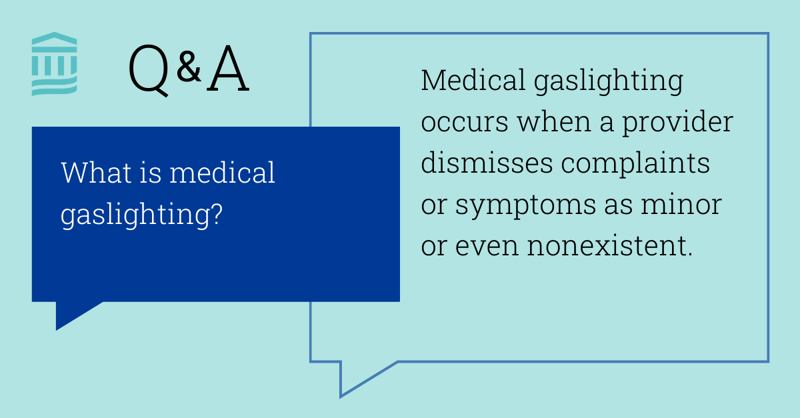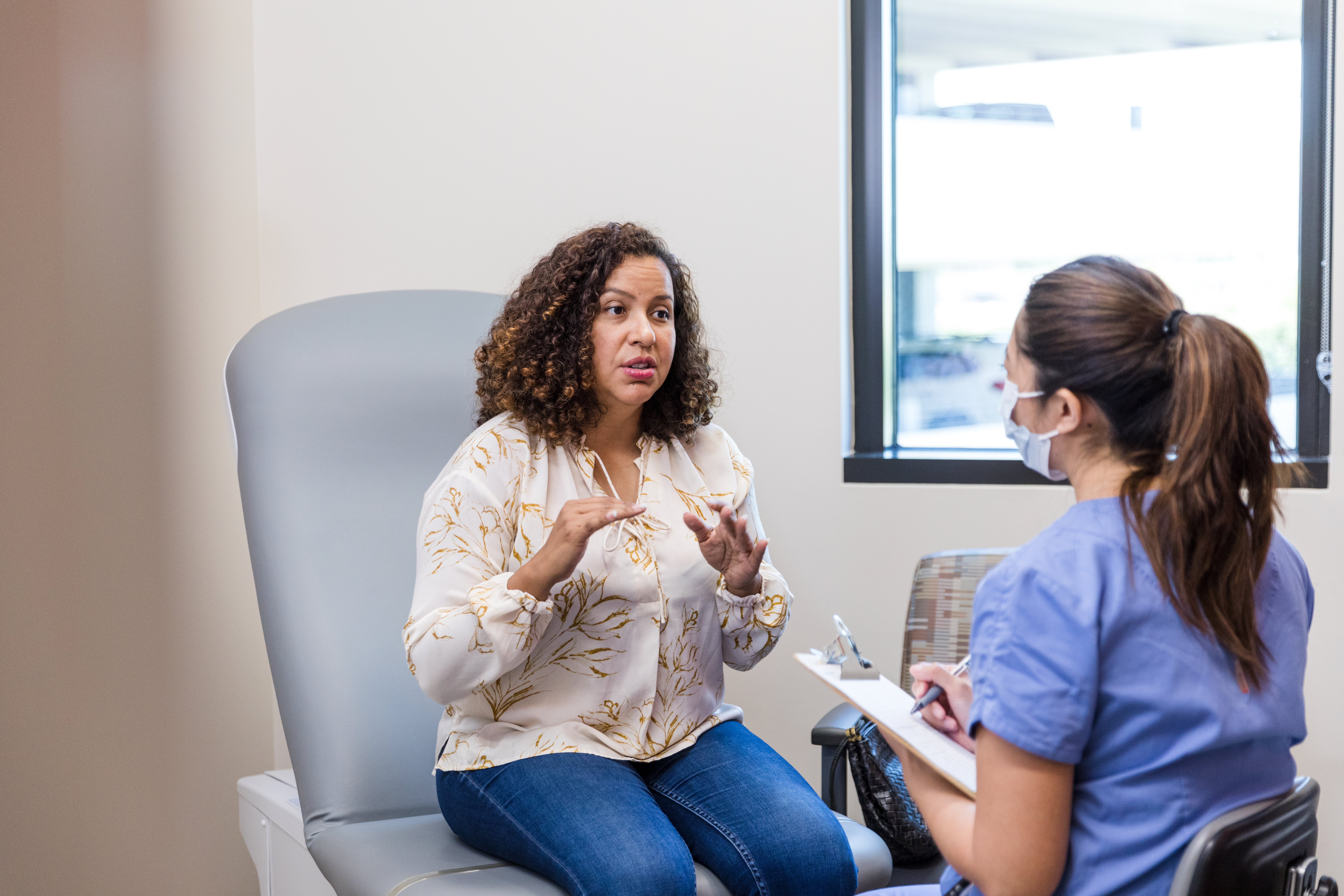The effects of bias on women's health
Everyone deserves equal access to quality healthcare. Unfortunately, patients can face disparities in treatment and research, fueled by both explicit and implicit bias. That’s true for many types of bias, including ableism, ageism, weight-based stigma, racism, and sexism. Continue reading to learn more about what women might face when it comes to bias and how our women’s health portfolio addresses their specific healthcare needs.
Medical gaslighting
Medical gaslighting occurs when a provider dismisses complaints or symptoms as minor or even nonexistent. In some cases, the bias behind medical gaslighting might be conveyed in an explicit or conscious way; for example, a doctor doesn’t believe a woman’s pain level is as high as she says, leading to less effective treatment. Or it could be unconscious or implicit, such as offering shorter appointment times for women than for men.
Pain is especially prone to gaslighting. In a 2018 survey of doctors, men with chronic pain were described as “brave” or “stoic,” while women were called “emotional” or “hysterical.” In that research, doctors were more likely to treat women’s pain as a mental health condition, even when there was diagnostic evidence of a medical problem.
Feeling unheard can have profoundly negative effects on health. Women might avoid going to the doctor, for instance, unless symptoms become particularly severe. They may skip necessary health screenings or be reluctant to share personal health information when they do see a health professional. Factors like these may play a role in why women are diagnosed later than men in more than 700 diseases, including cancer and diabetes.

Underrepresentation in research
.png?width=400&height=400&name=Feb24%20Social%20Content%202%20(34).png) Another reason women tend to be diagnosed later than men—which brings with it the danger of more advanced disease and less effective treatment—is a lack of understanding of how some illnesses can develop and present symptoms differently in women than in men.
Another reason women tend to be diagnosed later than men—which brings with it the danger of more advanced disease and less effective treatment—is a lack of understanding of how some illnesses can develop and present symptoms differently in women than in men.
Historically, women were excluded from clinical trials due to concerns about possible long-term effects on fertility and the assumption that results found in men would apply equally to women.
A 2022 analysis of the issue noted that the underrepresentation of women, and especially women of color, in clinical trials, has caused limited understanding of differences in biology, and contributes to health inequities and social injustice.
Need for self-advocacy
Because bias can be multilayered, it requires a nuanced and comprehensive approach that includes greater recognition of the issue in medical school education, research, legislative policy, healthcare administration, and ongoing physician training. For patients, one important step to take can be developing more awareness of the issue and strengthening self-advocacy efforts.
Some meaningful tactics include:
- Writing down your concerns and bringing notes. By putting your symptoms and questions in writing, you can help direct the conversation with your healthcare provider and feel more empowered in an appointment.
- Listening to what your body is telling you. You know your body better than anyone else, so if there’s a symptom or concern interfering with your everyday life, feel empowered to share that with your healthcare provider.
- Asking all of your questions. Communication is key for understanding any health issue. That’s why you should feel empowered to make clarifying statements on a diagnosis or treatment, and if you don't understand what’s being said, it’s crucial to keep asking until your provider can give you all of the right information.
- Coordinating your care team. If you’re receiving specialty care, it’s important that your health information is shared between your providers. This serves as a strong foundation in the delivery of care across specialties.
Self-advocacy is especially important because research shows that women are likely to experience delays in imaging and lab work, are less likely to receive care from specialists during hospitalization, and are more likely to be misdiagnosed and sent home from the emergency room, especially younger women.
Our women’s health portfolio aims to help close this gap by providing resources designed for women. “Women’s health needs are unique and require unique solutions designed around them,” says Steve Tringale, president, Mass General Brigham Health Plan. “The women’s health portfolio is consistent with our strategy to put members at the center of their healthcare and our historical commitment to supporting underrepresented health needs and communities.”
Our offerings cover the full spectrum of women’s health needs, such as pregnancy and postpartum support, menopause, and mental health. To learn more about our women’s health solutions, wellness offerings, and eligibility, visit our member portal.
